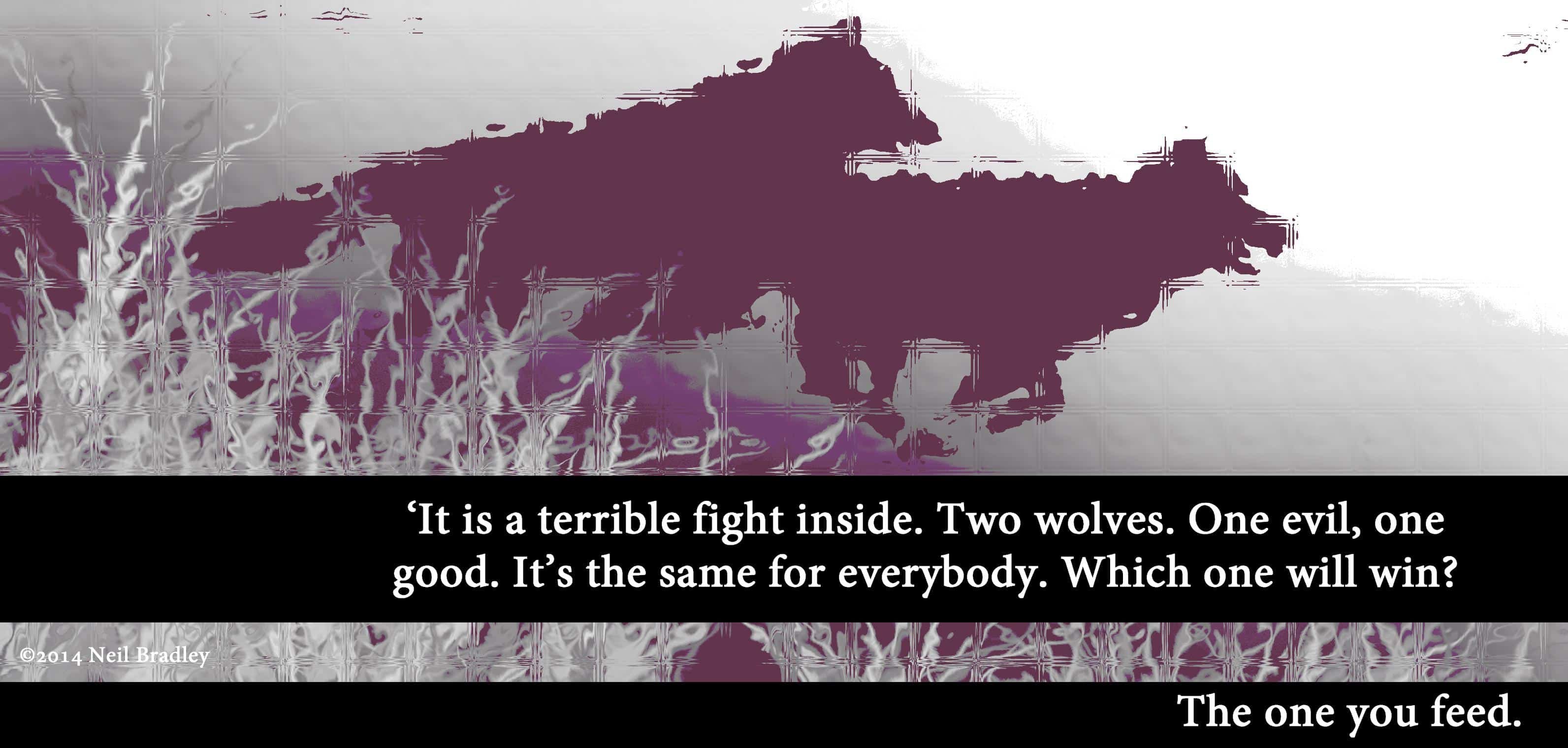 In my last two posts I talked about how underlying conditions such as glandular problems and gut imbalances in the body can greatly affect your mental health. While the previously discussed imbalances may be factors to be considered, mental health experts are finding that lifestyle is one of the most significant factors that affect our emotional well-being.
In my last two posts I talked about how underlying conditions such as glandular problems and gut imbalances in the body can greatly affect your mental health. While the previously discussed imbalances may be factors to be considered, mental health experts are finding that lifestyle is one of the most significant factors that affect our emotional well-being.
Unfortunately, a healthy lifestyle is chronically neglected in our constant on-the-run culture. Numerous studies have found a surprising phenomenon; anxiety, depression and even suicide tend to increase in proportion to a country’s affluence. It appears that affluent societies tend to bread isolation, social pressure, shame and a constant competitiveness of never having enough or being enough. This is evident in virtually every social circle imaginable. Whether it’s the stay-at-home moms’ who feel shame in admitting how hard it is to be a parent, the adolescent girls’ who don’t have the ‘right’ body type or the 9-5er’s who believe that the busier they are and the less sleep they need, is a badge of worthiness.
The good news is that we don’t have to buy into this thinking and more than that, we can significantly affect our emotional well-being by making some relatively easy lifestyle changes that all boil down to taking time to put your health and wellness first.
Your Lifestyle and Anxiety and Depression
1) Poor Nutrition
I know I may be pointing out the obvious, but I don’t think that Westerners fully grasp the idea of mind-body health. Your head is part of your body: your mind or mental health affects the health of the rest of your body and your body’s health affects your mental wellness. So if you feed your body garbage you’re also feeding your mind garbage. You know that if you eat garbage you may not be able to run that marathon, will suffer poor digestion or heart burn or have have skin eruptions so how could your brain (which is part of your body) not also be affected? It’s common knowledge that deficiencies in B12 and Iron can cause depression, but there are many other vitamins, minerals and diet choices that directly affect our mental health.
In my next post I will detail extensively an anti-anxiety or anti-depression diet, but to keep it simple: eat tons of fresh vegetables, some fruit, sufficient protein (nuts, seeds, fish, chicken, beans, lentils etc.), healthy fats (oils, nuts, fish, butter, avocados) and some whole grains and ditch the refined flours and sugars and red meats which all contribute to inflammation in the body and brain.
2) Lack of Sleep
There is an Irish proverb that says “A good laugh and a long sleep are the two best cures for anything.” Neuroscientists at Berkeley might well agree. They learned that lack of sleep turns on the brain’s amygdala and insular cortex – the parts of the brain that are responsible for emotions and worrying. The amygdala is the part of the brain that is responsible for fight-or-flight mode. When we are sleep deprived we are more prone to operate from that area of our brain instead of the pre-frontal cortex which is responsible for staying calm and making sound decisions. Worry warts or people with Generalized Anxiety Disorder are even more susceptible to the anxiety that is triggered as a result of sleep deprivation.
Lack of sleep creates stress on the body as well as the brain. The reason you often feel nauseous, have achy joints, tense muscles and suffer headaches after a late night is because your body has been stressed; it hasn’t had the chance to do the repairing and detoxifying that it normally does during a good night’s sleep. This stress compounded by any mental and emotional problems, stresses your adrenals which triggers an increased production in adrenaline and cortisol. The minute these hormones are coursing through your veins you will feel anything from mild anxiety to a full blown panic attack. That’s why they are called the stress hormones.
Our body processes our day and stresses through sleep. So if you are under a lot of stress, you need more sleep–not more work or ‘productivity’. It is no secret that severe sleep deprivation can cause hallucinations, paranoia and other schizophrenic like symptoms. Is it therefore any surprise that when we don’t get enough sleep we start to feel anxious, depressed and even a little ‘crazy’? Imagine what chronic sleep deprivation may be doing to our minds.
If you’re suffering from anxiety or depression and you are regularly making it through the day on 6 hours of sleep or less then you might want to try and see how a few weeks of eight hours of sleep feels like. You might wonder how you ever functioned otherwise. Rest (A.K.A as taking time to do nothing) is also essential. Many of us, including myself, often feel like we need to be doing something ‘productive’ which never gives our brain a break. Requiring adequate sleep or rest is not a weakness instead, it is believing that you are more worthy, the busier you are, and the less you sleep.
3) Lack of Exercise
Study after study has shown that thirty minutes of sustained, daily, physical activity a day is equivalent to taking a standard dose anti-depressant/anti-anxiety. The reason for this is that physical activity actually stimulates the production of endorphins, serotonin, dopamine and adrenaline all of which are known as the feel good hormones. Exercise does naturally what medication is designed to do synthetically.
Finding a form of fitness that you enjoy is key. My yogi spirit and Buddha heart has always hated the aggressive nature of competitive sports. I am not against them they just don’t appeal to my personality and for a long time I had almost stopped exercising completely. A lot of people who are not ‘sporty’ think they are not athletic or the ‘fitness type’. Fitness and being athletic simply involves physical activity and it can be completely non-competitive. For myself, the most rewarding competition is one in which I challenge myself to go further the next time.
If you generally hate exercise, the trick is to find an exercise that you enjoy or that doesn’t feel like exercise: skiing, swimming, karate, snowshoeing, yoga, zumba, hiking (and there a zillion others you can Google) are all forms of fitness.
A word of caution: Do not choose to go off your medication simply because you start exercising. Always consult your doctor or health care professional before choosing to make this step.
4) Negative Thought Patterns
Cognitive Behavioural Therapy is considered the gold standard in the world of psychology to treat anxiety, OCD, depression and even bipolar. Cognitive Behavioural therapists state that most mood disorders are the result of negative thought patterns which become habitual after months or years of reinforcement. By the time a full blown anxiety disorder has developed, the individual is a slave to their compulsive and obsessive thoughts. ‘Snapping out of it’ is not an option.
 Negative thinking is illusory. We may think we are being ‘realistic’, ‘practical’ or even comical by ridiculing and scoffing at everyone and everything when in fact we are sucking the joy out of our lives and possibly everyone around us. Certainly, we need to be grounded, but if we tend to be master cynics or chronic worriers then we are forever feeding the idea that life is out to get us and so are the people in it. Besides as Dr. Andrew Weil outlines on his blog, cynicism is bad for your health on so many levels.
Negative thinking is illusory. We may think we are being ‘realistic’, ‘practical’ or even comical by ridiculing and scoffing at everyone and everything when in fact we are sucking the joy out of our lives and possibly everyone around us. Certainly, we need to be grounded, but if we tend to be master cynics or chronic worriers then we are forever feeding the idea that life is out to get us and so are the people in it. Besides as Dr. Andrew Weil outlines on his blog, cynicism is bad for your health on so many levels.
So as T.S. Eliot said “Let’s not be narrow, nasty or negative.”
As someone who practically had a degree in worrying, I have to say that addressing my thought patterns and changing my thoughts from “All will be hell” to “All will be well” was my first step to recovery. Becoming more aware of my thoughts through daily meditation and mindfulness was the single, most important change I have ever made. Of course like anyone else I still worry and have crazy days, but I took the advice of Katie Byron: “I don’t believe anything I think.” Most days.
5) Poor Coping Strategies
Poor coping strategies can be related to our thought patterns as well. If our only coping strategy is through obsessive thinking, believing that we can ‘think’ our way out of our source of stress, or that stress will go away when our situation changes then we are setting ourselves up for a life of chronic stress. Poor coping strategies go much further than ‘thinking’ our way through a problem. When we smoke, overeat, drink to excess, over exercise or binge shop, we are numbing out. We do not allow ourselves to feel, process and release the stress when we don’t face it head on. We are instead pushing it down further, leaving it to fester and come out in unpredictable ways, and furthermore allowing it to wreak havoc on our bodies and minds.
Journaling, finding a hobby, developing a sense of humour about your situation, socializing with like-minded friends and venting with someone you trust are excellent ways to put your stresses into perspective. Exercise, yoga, tai chi, progressive muscle relaxation, deep breathing exercises, meditation and listening to relaxing music are helpful in calming the central nervous system and turning off the flight-or-flight response. Distancing yourself from negative people even if they are family or friends as well as learning to say ‘no’ are all ways to interrupt the chronic stress cycle that many of us find ourselves in.


